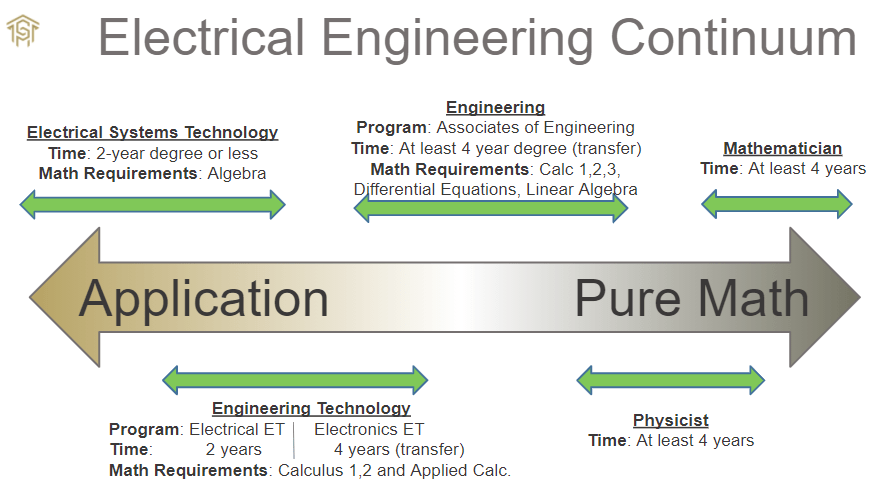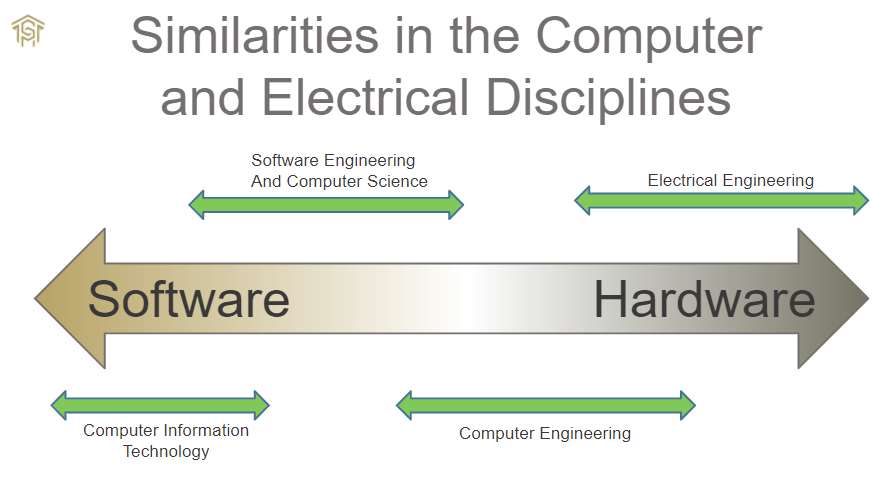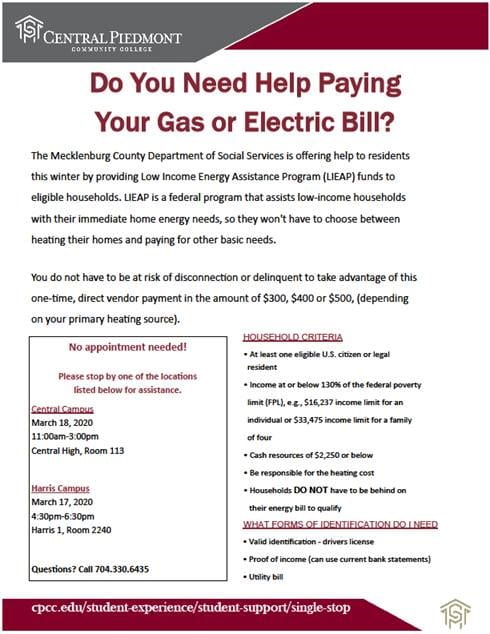 When someone says “I want to be an engineer” it is important to know where their interests lie along a scale between application of technology, and the math required to develop new technologies.
When someone says “I want to be an engineer” it is important to know where their interests lie along a scale between application of technology, and the math required to develop new technologies.
Applications based programs are what the name implies. The focus of these fields are all about installing and maintaining systems. Since there isn’t any development, there’s not much high-level math required. Algebra is used with these jobs, but for the most part it isn’t incredibly advanced. At Central Piedmont, we have many programs that deal with application of technology. Since this blog is about the Computer, Electrical, and Electronics fields the program that best fits this is the Electrical Systems Technology program. The first required math class is MAT 110, Mathematical Measurement and Literacy and the highest level is MAT 171, Precalculus Algebra.
The next level is Engineering Technology. Hey, that’s me! These programs start with MAT 171 Precalculus as the first required math course and build up to calculus 1 or calculus 2 from there. We use the higher-level math with more advanced circuit analysis techniques starting with your first circuits course ELC-131 Circuits I in your first semester. These classes have a lot of hands on learning in the lab, but we also cover a bit of theory as well. Employers might expect you to be able to do a little design work as well as installing and maintain systems. We offer two degrees at this level that focus on electronics and it can be a bit confusing… Both of the Engineering Technology degrees described below can get you a job and transfer to a university if you’d like, we have different recommendations for each of those goals.
Students typically arrive with a goal of either finishing the 2-year degree (applied associates of arts or “AAS”) and getting a job in the industry, or transferring to university to complete 2 additional years and earn a Bachelor’s degree in Engineering Technology (BSET). The best option for workforce development (getting a job after the AAS) is the Electrical Engineering Technology program. Students in this program will either get an internship and spend time with a company, or they will earn the OSHA-30 occupational safety certificate. These experiences set students up to be valuable employees in the industry.
For students who want to transfer, the best option for students who would like to complete a 4-year degree is our Electronics Engineering Technology program. We’ve worked with the University of North Carolina at Charlotte’s Electrical Engineering Technology (ELET) program to provide the smoothest transition possible for students. “Wait” I hear you say “Why does the Electronics AAS transfer to the Electrical bachelors degree?” Well… It is because universities and community colleges are controlled by two different organizations and each has their own requirements. It turns out that the program with the most transferrable credits is our Electronics ET AAS degree. Check out our page on transferring Engineering Technology degrees here.
The next level in the scale is Engineering. And I can hear you saying “I thought we just covered that…” But we haven’t. Traditional engineering is also called “Engineering Science” and is a separate discipline than Engineering Technology. Even at the university level, these are two completely different programs, often with different professors for each program. Engineering degrees require at least 4 years of instruction. You can earn the first 2 years of the Bachelors of Science in Electrical Engineering (BSEE) at Central Piedmont in the Associates of Engineering program which is a “transfer only” program. Engineering is a calculus-heavy program, regardless of whether it is Mechanical, electrical, or civil engineering focused. The first circuits class you’ll take in this program require Calculus 2 as a Pre-req! Other math requirements of the degree are Calc. 3 , differential equations and Linear algebra. In fact many Engineering students take just a few extra classes and earn a full Minor in Mathematics along the way. Since most of the classes are the math requirements of a BSEE degree, you don’t take many circuits classes in the first two years. You’ll then transfer to a university’s Computer or Electrical Engineering program. Most of our students go to UNCC, but we’ve had graduates accepted everywhere including high-ranking schools such as Clemson, Rose-Hulman, and MIT. Graduates of these programs are designing and implementing solutions to all sorts of engineering problems all over the world.
The next stop on the scale is Physics, or “Theoretical Engineering”. This is a very math-heavy degree and there’s very little manual application in the same sense of the previous three disciplines describe. Physicists will work closely alongside engineers in designing new systems, for example, nuclear reactors. Since so few physics students would be interested in this webpage, I’ll keep this section brief.
The final stop on the scale is Pure Mathematics. Mathematicians work alongside physicists, Engineers and Computer Scientists to help design and implement new systems and gain important new insights in a variety of fields. Again, fewer of these folks are in the program here so I’ll keep this section brief.
Quick takeaways and info:
- At the 4-year degree level, “Engineering” Bachelors of Science in Electrical Engineering (BSEE) is different than Bachelors of science in “Engineering Technology” (BSET).
- 2-year Applied Associates of Arts (AAS) engineering technology graduates are called “technicians”
- 4-year Bachelors of science in Engineering Technology graduates are called “technologists”
- After a 4 year degree and once in the workforce, the pay difference for ET versus engineering is similar.
- Depending on the state, ET graduates can take the Fundamental of Engineering and Professional Engineering exam. North Carolina board of Examiners for Engineers will allow ET students to become “Engineer in Training” and (EIT) “Professional Engineers” (PE)







You must be logged in to post a comment.